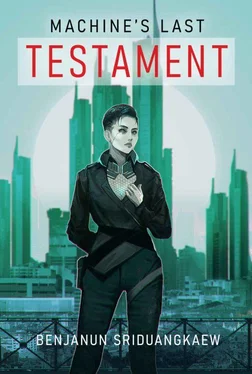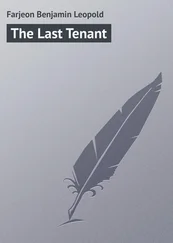Suzhen suspects she knows where this is going. But Vipada plays the part with sharp conviction, the warlord in the afterlife passing through her spiritual judges and inquisitors, remorseless even as she is pulled down to the ocean floor. “It is the human condition to be culpable in evil,” she says as the dark swallows her. “Great or small, the sole difference is the extent. Life is a slaughterhouse. You take charge of it or you’re swept away by it; you are the butcher or you are the meat.”
The irredeemable monster, admitting no regrets and making no apologies. Yet proud to the end. Perhaps intentional, perhaps not, though Suzhen expects it would have been more politic to portray the analogue for the Warlord of the Thorn with a less comely face, a more pathetic mien.
At the afterparty Taheen introduces her to Vipada, who alone of the cast has already shed cosmetics and costume, fresh-faced and incongruously mortal amidst a crowd of ghostly magistrates and afterlife demons. When she hears what Suzhen does for a living, she breaks into applause. “Thank goodness. I was going to throw up if I had to meet one more critic or really anyone who breathes the arts . The arts, even that sounds so nauseating, don’t you think? What a relief to see a person who lives in the real world.”
“Vipada is an artist who can’t stand other artists.” Taheen leans toward Suzhen, faux-conspiratorial. “ Especially other actors.”
“Oh, Taheen, you can’t stand us either. Creatives excel at one thing and that’s being insufferable—if I have to hear one more writer claim they spin lies for a living! They think it’s such a charming joke instead of absolutely trite. If only my final evaluation had given me a choice of profession in accountancy or biochemistry…” Out of character Vipada is animated, expression mobile, hands moving fluidly as she talks. None of the cold solemnity of the dead general, the sheer heft of presence. “Tell me about your work, please, Suzhen. Everyone in here wants to talk nothing else but the play.”
She’s caught off-guard; there is no script for being asked about her work as though someone is taking a genuine interest. “It’s fairly mundane.” The rapid desensitization to suffering, the numbing of procedure. “Most people would agree the things you do here are far more interesting. Ideas are potent. Carrying out regulations isn’t.”
“No, no. That’s the self-serving loftiness artists want to sell you. Ideas are fine. Ideas can affect. But doing is important—more important than thinking about it. Experience is what makes a person interesting, not ideas, and you must’ve accrued a stunning wealth.”
It is easy to be flattered, charmed. But as Suzhen speaks of Bureau work and attempts to make it sound exciting, she realizes that the actor wants to be thrilled. Vipada expects Suzhen to share the tragedies of those who enter and exit her office, their hard-won triumphs, their humility and simplicity. The lives of those born in a dominion of ruin. It is a safe thrill, a reminder that on Anatta deprivation is a remote concept, improbable and impermissible—as long as one is a citizen. Vipada may claim her heart bleeds for those in need but nevertheless she belongs to the norm, the default, and how much better it is to be so; how wondrous it is to haverather than to lack.
Suzhen finds herself almost speaking of Ovuha, that finely made, immensely educated potentiate. The one who would not have required entry to Anatta if her home had not been destroyed by the Peace Guard. The one who could be in this room and join the conversation as gracefully as any, whose bearing is as sophisticated as Vipada’s. She refrains. Ovuha is not a story or a character; she doesn’t exist as a vehicle through which Suzhen can deliver an argument. In the end, to shift the subject, she says, “You were very believable. The Wayupuk, bird of war.”
Vipada laughs. “Not my usual thing, but I try not to get typecast. Taheen—” She points; they have wandered off to hold court among a group of playwrights. “Taheen would tell you I tend to play flighty gods or devious ingénues—vixens, you know—and they aren’t wrong. So I was going to challenge myself. Getting into character for this one took incredible research. I watched interviews with refugees, read their biographies. For their perspective of the warlords, you understand.”
The perspective of being at gunpoint, tearing up images of revered symbols. The perspective of being made to fabricate miseries and terror under a warlord’s iron heel. And Suzhen would be the first to admit that not all warlords are benevolent with their own people, but—she tamps that down. Even indulging that line of thought will make it express on her face, like pustules. There’s so much she must keep to herself. “Was the character meant to be any particular figure or just an amalgam?”
“Ah, I’m not the author, but I expect the script’s meant to be… topical. There were some last-minute changes to my character—” Vipada flutters her fingers. “But that’s all backstage and the changes improved the play, if I may say so myself. They’re such mysterious creatures, the warlords, I’ve always wondered how they can keep their faces and identities such perfect secrets. Maybe in a few years we’ll uncover it all. True, they’re monsters, but there’s anthropological value to the culture, isn’t there? The history, the mystique. It’s surely worth studying once they’re no longer a threat.”
“It must be fascinating,” Suzhen agrees, wondering whether Taheen has been exposed to this particular side of Vipada. Probably they have, and they would say Suzhen takes the actor’s fetishism too seriously, that it doesn’t matter. What matters is to seize the life she has, to thrive.
They continue to talk, and Anthropological value, isn’t there? or not, Vipada is an easy conversationalist; the actor waves away her admirers, the few critics who’ve been allowed into the afterparty, and plies Suzhen with more tisane cocktails. “Let’s meet again,” she says before she departs to mingle.
On her part, Suzhen cannot imagine what Vipada could find of interest in her. But the actor is not unpleasant and Suzhen tells herself this is progress, this is a step out of her shell. She doesn’t have to commit to anything. Taheen sees her off—she wants to tell them she’d rather have spent time with them but keeps that to herself. No point being their burden, latching onto them like a barnacle; she has been that long enough.
Compulsively she checks on Ovuha. The tracker points to a park several blocks from Gweilan Station. There are restrictions on how far Ovuha can travel, how long she can spend away from her housing or work, and so far Ovuha has complied without fail. A model candidate. Her supervisor Nattharat congratulated Suzhen on her first sponsorship going so well, but not before offering unsolicited advice. Early days yet, my dear. Plenty of them behave for six months and the minute they’re out of sight, they turn to drugs and petty theft. They sell their children. You can’t trust them, honestly probation should go on for a year minimum. Six months don’t tell you a thing.
What are you here for, Suzhen wanted to ask, why are you in this line of work when you loathe them so desperately, when you think of them as less than animals. The Selection Bureau doesn’t screen for empathy in its personnel: if it did, there would be maybe a dozen agents assigned per city, twenty at most. She turns back to Ovuha’s vital signs—all fine—and double-checks the alerts she’s set in place. More than anything she’s wanted to stay hands-off, granting Ovuha total privacy, but after the beating she’s started to monitor risk indicators. Her potentiate will survive and gain citizenship, come hell or high water, Suzhen is determined in that much.
Читать дальше












